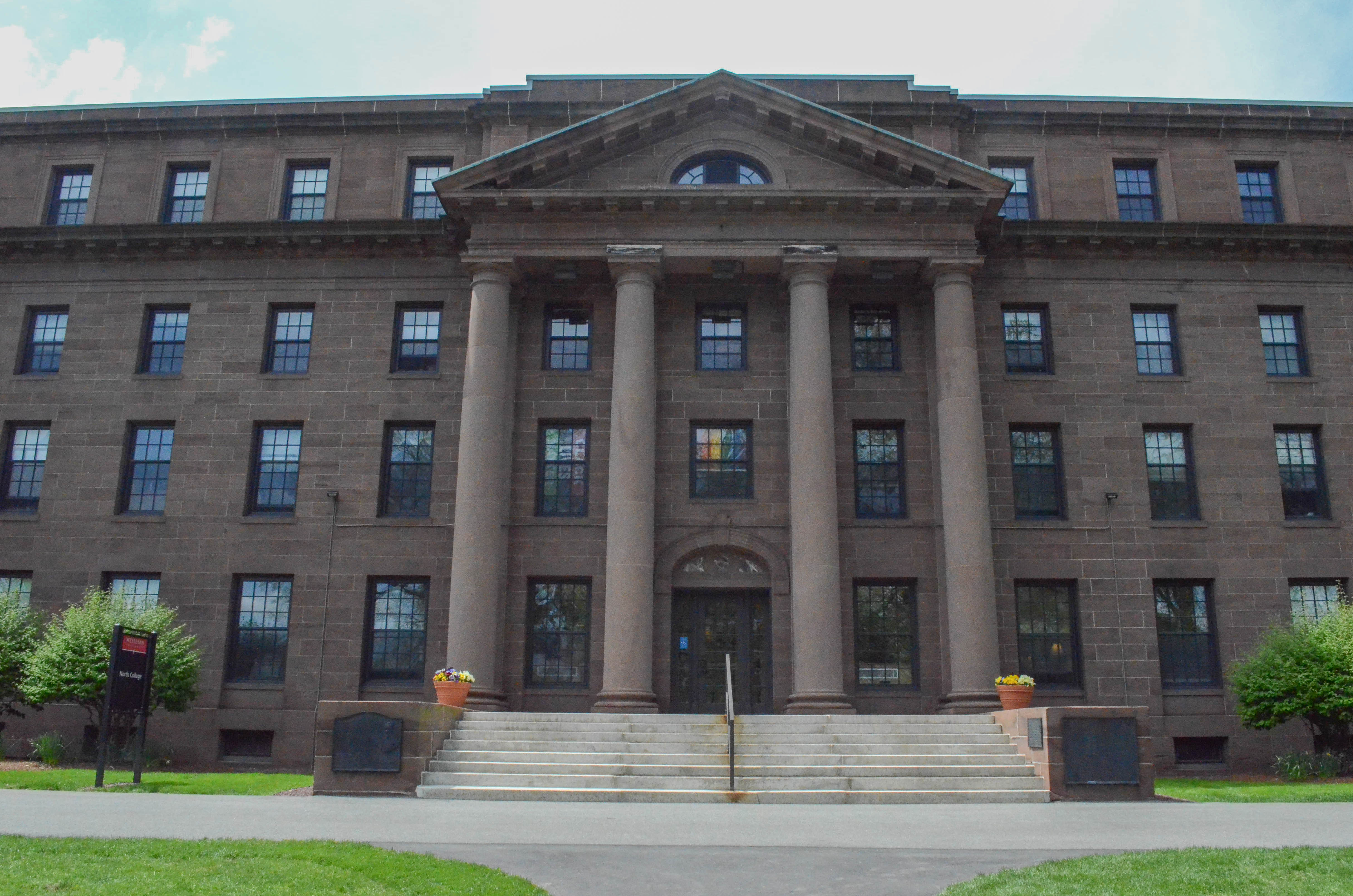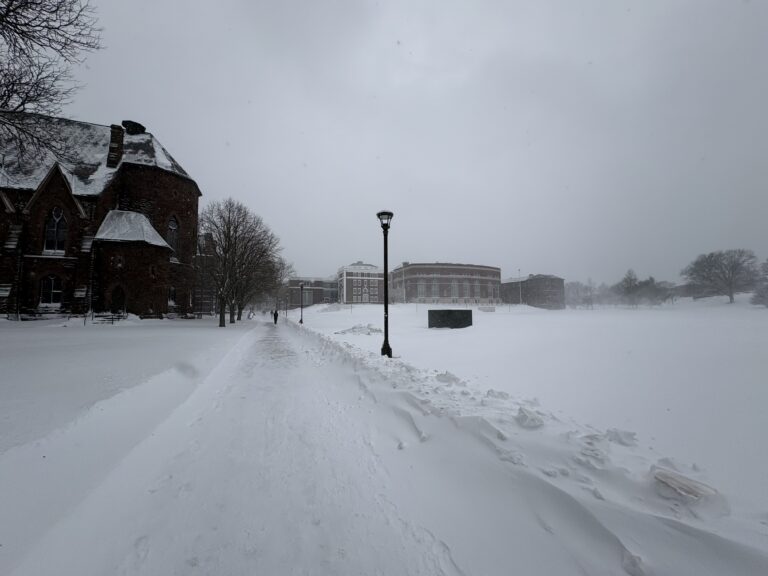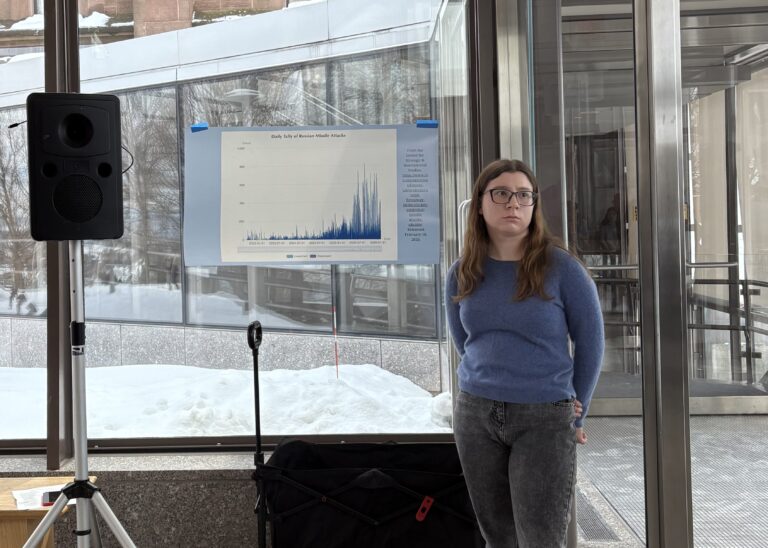Wesleyan Considers Establishing New Campus in China
Wesleyan may open a campus in China in partnership with the Chinese corporation Hengdian Group and the public university Shanghai Theatre Academy (STA), University administrators have confirmed.
Administrators note that both Wesleyan and Hengdian Group are currently gathering information to decide whether to move forward with the joint venture. Director of the Fries Center for Global Studies Stephen Angle confirmed that Hengdian Group has purchased the land for the campus, and has narrowed down potential partners to Wesleyan and one other university.
Hengdian Group first approached the University in February 2019 with the intention of creating a joint venture, according to Angle and Chief of Staff of the President’s Office David Chearo. In the spring of 2019, a group of representatives from the Hengdian Group visited Wesleyan, after which a delegation from the University, including Angle and Chearo, traveled to China.
STA, whose education focuses on dramatic arts, sent representatives to visit Wesleyan along with representatives of Hengdian Group. Nevertheless, Angle noted that the two main partners in the joint venture would be Hengdian and Wesleyan.
Chearo explained that the earliest estimates for the progression of the joint venture would place contract negotiations in 2020. Developments such as recruiting faculty, creating a curriculum, and constructing the campus will span at least an additional three years, with the earliest opening of the program in 2023.
All students at the Hengdian campus would likely be from China during the initial phase of the venture, with plans to integrate international students in the following years, Angle said.
The proposed campus, according to Angle, would be located in the city of Hengdian in connection with Hengdian World Studios—the largest collection of film studios in Asia—and would offer a dual degree with Wesleyan and STA. When the Hengdian Group was searching for potential American partner schools, Chearo said that they took note of Wesleyan’s renowned film program.
“In Hengdian, they have this huge world studio that’s described as ‘Chinawood’ at times,” Chearo said. “So I think they were originally imagining a film institute, and were interested in Wesleyan because of our prominence in film. Having visited here, they realized that learning film at Wesleyan means learning it in the liberal arts context with a broader curriculum. We’ve been pretty clear from the beginning that it’s a full package.”
According to Angle, there would be two points of direct involvement with the Chinese government. The leader of the joint venture, in the role of a university president or chancellor, would be a Chinese Communist Party (CCP) secretary. Angle explained that every university in China is led by a CCP secretary.
The role of the president or chancellor in China is different than in the United States, according to Angle. Primarily, such a leader is meant to consider larger questions about the role of the university in relation to the mission of the party, rather than the daily workings of the campus. The organizational and day-to-day decisions for the campus would be made by provost-type administrators, who would be chosen by Wesleyan. STA would potentially select local faculty, as well, according to Angle.
Wesleyan would have veto power for decisions made in the joint venture, Angle said, as would Hengdian Group.
China’s Ministry of Education would also need to approve the joint venture. According to Angle, during the approval process, the Ministry would primarily be interested in hearing about overarching aspects of the program rather than its inner workings.
Creation of the campus would come at no direct cost to Wesleyan. In fact, the University may earn money from a licensing fee, as Angle explained. There are concerns about indirect costs, however, such as the loss in funds due to staff time dedicated to the project in these early stages and potential reputational loss if the endeavor were to be viewed negatively.
Angle expanded on potential reputational concerns for the University.
“If we were to do this—and setting aside financial questions—would it turn out to be a good thing or a bad thing for Wesleyan?” he said. “Would it be worse to be a graduate of Wesleyan University as a result of this somehow, instead of better? Or neutral?”
Other United States–based schools have joint ventures located in mainland China. New York University (NYU) Shanghai, for example, is a program that currently houses 1,300 students, about half of whom are from China.
Duke Kunshan University (DKU), which started offering a four-year undergraduate degree just last year, is a joint venture between Duke University and Wuhan University in China. Over two-thirds of DKU’s inaugural class are from mainland China and Taiwan, and the remaining third are international students.
Neither NYU-Shanghai nor DKU have private corporate partners, as would be the case for Wesleyan if it were to enter into an agreement with Hengdian Group.
DKU’s Dean of Undergraduate Curricular Affairs and Faculty Development Noah Pickus ’86 expanded on the benefits that Duke saw when considering whether or not to create the new university. Some of the biggest opportunities include being able to craft a new curriculum, innovate with curricular structure, do research in mainland China and in Asia, and provide students with the opportunity to embed themselves in an international hub.
“Deciding whether to do something like this involves thinking about the long-term benefits—not only to Wesleyan, to students, to faculty in China, to the world—and the more short-term risks,” Pickus explained. “You have to be clear-eyed about both.”
Pickus noted that these questions of curriculum on an international campus also informed Duke’s choices regarding a joint-venture program in China.
“How would you create a culture and curriculum, which, while it drew on much that is very familiar to a Wesleyan liberal arts education, also could be re-thought and remixed in a more global context?” he asked.
Chearo added that, beyond a film program, the campus would ideally maintain the academics of a liberal arts education, initially with a small faculty and a limited amount of available majors.
“Fundamentally the only reason we would be interested in this—and frankly, the only reason that the partner’s potentially interested in us—is because of the sort of academic values that we have,” Angle said. “So if this were to happen, there would naturally…be some transformation [of Wesleyan’s curriculum], but just because we want it to make sense there.”
Chair of the College of East Asian Studies Mary Alice Haddad further contextualized education in mainland China.
“There’s no way that we could run a campus on the mainland that is like Wesleyan,” she said.
Haddad added that a campus in another country could not be a carbon copy of a United States–based school, much like a Chinese school creating a branch in the United States would not be able to transfer all of its own laws, ideals, and regulations onto U.S. soil.
She also spoke more directly to concerns about impositions on academic freedom in mainland China and worries about faculty potentially being detained at the border.
“It makes me nervous that there are a lot of detentions that are not fully explained,” she said.
Pickus pointed to questions regarding academic freedom, noting the challenges that came with starting Duke Kunshan.
“There were and there are deep questions,” Pickus said. “Some of them are about academic freedom and, [just] because we haven’t had an issue doesn’t mean that we won’t, right?… There are concerns about being in China, when there are all kinds of challenging things going on. And that generated a significant debate about challenges elsewhere in the world and about here at home, and what’s appropriate for an educational institution.”
For these reasons and others, administrators said, Wesleyan has not yet made a commitment to the joint venture.
“There’s always this kind of chicken-and-egg problem, where we want to have as much information as possible, to have a productive conversation, but we also don’t want to invest too much time or energy into something that could be a waste of time,” Chearo said.
Wesleyan trustees, members of the president’s cabinet, and select faculty have been involved in conversations about the potential joint venture so far. According to Chearo, President Michael Roth ’78 will bring the topic to the Faculty Executive Committee later this week.
Emmy Hughes can be reached at ebhughes@wesleyan.edu or on Twitter @spacelover20.
Hannah Reale can be reached at hreale@wesleyan.edu or on Twitter @HannahEReale.








Ugh, don’t have the Wesleyan name associated with China. Not a country that shares our morals.
Wrong time, wrong move. China is the moral equivalent of Nazi Germany right now.
Subway started out with one restaurant in New Haven. Franchising a popular name is irresistible to business people.
How could anything that takes place in China have anything genuinely in common with earning your degree from the Wesleyan faculty, on campus at WesTech in Middletown.? Its just a scheme to capitalize on full paying Asian students who couldn’t come to the real Wesleyan because it is so small. Hope Wesleyan II never comes to fruition.
It seems like the American idiots in the head offices at Wesleyan care more about receiving dirty Chinese remenbi from the CCP as well as crafting patriotic Chinese non-liberal arts college courses that serve the Chinese motherland. Will Wesleyan have their instructors teach Communist Xi Xingping thinking? Dear American idiots in power at Wesleyan: kill your plan, don’t accept dirty Chinese remenbi, stay your distance away from the CCP, and keep your focus solely on your American campus.
My Wesleyan education taught me a healthy skepticism, so I’m going to assume this is just a topical joke.